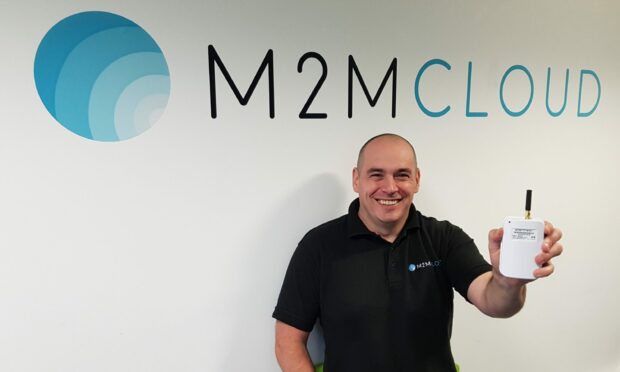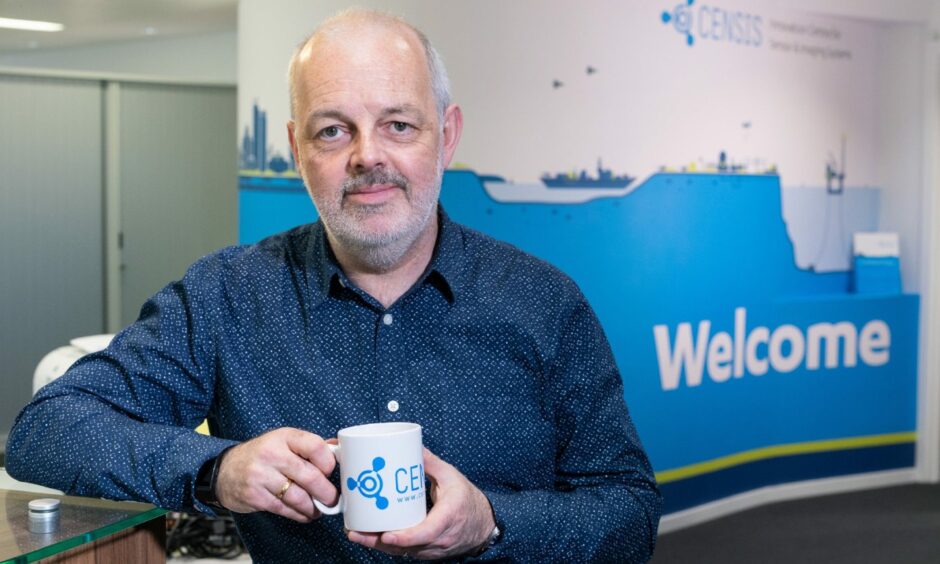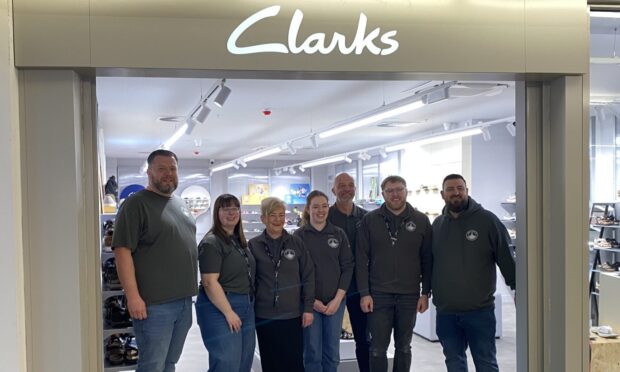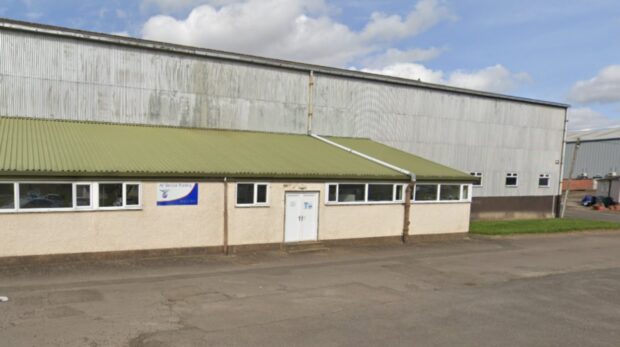Dundee tech firm M2M Cloud will develop a world-first water monitoring device after receiving a £100,000 grant from Scottish Enterprise.
M2M Cloud is an internet of things (IoT) company delivering device to cloud solutions.
IoT describes physical objects embedded with technologies that connect and exchange data with other devices and systems over the internet.
The £140,000 project will help the firm enhance its existing Neptune water monitoring device which identifies potential harmful bacteria outbreaks.
It is done in collaboration with Scotland’s innovation centre for sensing, imaging and IoT technologies Censis.
Water monitor to ‘the next level’
Neptune uses sensors on the surface of pipes to remotely and frequently take temperature readings, notifying the building user if the water system is out of specification.
Cooled or heated between temperatures of 20°C and 50°C and used infrequently, water carries the risk of developing harmful bacteria such as legionella.
The project will incorporate machine learning and allow Neptune to operate on different networks.
We’re pleased to announce the launch of a new product focused website for our water safety monitoring system Neptune (https://t.co/76mpD0az5P). The solution remotely monitors water assets in order to detect conditions which encourage bacterial growth such as Legionella. pic.twitter.com/GNYhewGJ4D
— M2M Cloud (@m2m_cloud) June 4, 2020
Machine learning techniques will be used to calculate risk scores for sites and predict potential issues before they occur.
M2M Cloud director Chris Butchart said the project will take Neptune to the next level.
“The device is already considered to be the best-in-class automated water monitoring solution in the UK.
“But we anticipate we’ll be able to get the message out to even more organisations across Europe.
“Working with the Censis team’s technical expertise will help us remove barriers to sales and improve the Neptune installation experience.”
Neptune improvements
Censis will support M2M Cloud with hardware and firmware development of a prototype, followed by its subsequent roll-out.
This includes looking at all aspects of Neptune’s battery life, cutting the cost of production, ensuring it is 5G-ready, incorporating edge processing, and helping prepare for mass manufacturing.
Censis chief executive officer Paul Winstanley said: “We supported M2M Cloud with the development of the original Neptune device, which has set a new standard for automated water monitoring in the UK.
“We had no hesitation in helping the team again when the opportunity arose to help with the next generation of the product following the award of the SMART grant.
“We support ground-breaking innovation like this.
“It’s particularly encouraging to see it emerge from a small company.”











